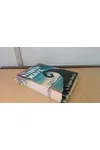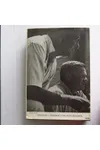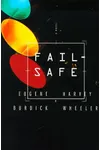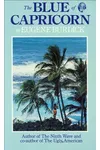Picture a storyteller who surfed California waves by day and reshaped American foreign policy by night—meet Eugene Burdick! This Iowa-born political scientist and novelist, born in 1918, crafted gripping tales like The Ugly American that challenged how the U.S. navigated the Cold War world. With a Rhodes Scholar’s intellect and a Navy veteran’s grit, Burdick’s stories weren’t just page-turners—they sparked real-world change.
From his academic perch at UC Berkeley to his best-selling novels, Burdick blended sharp political insight with human drama, making him a unique voice in mid-20th-century America. Ready to dive into his world? Let’s explore the man behind the books.
The Making of Eugene Burdick
Born in Sheldon, Iowa, on December 12, 1918, Eugene Leonard Burdick moved to Los Angeles at age four, where he caught waves and dreamed big. His socialist father named him after labor leader Eugene V. Debs, planting seeds of political curiosity. Burdick studied psychology at Stanford, but World War II called him to the U.S. Navy, where he earned the Navy and Marine Corps Medal for heroism, diving into burning oil to save four men. After the war, he pursued a PhD as a Rhodes Scholar at Oxford in 1948, focusing on European syndicalism, before landing as a political science professor at UC Berkeley.
His writing career kicked off with a bang in 1947 when his short story “Rest Camp on Maui” won second place in the O. Henry Award. This early success hinted at Burdick’s knack for blending human stories with big ideas, setting the stage for his literary rise.
Eugene Burdick’s Unforgettable Stories
Burdick’s novels weren’t just stories—they were wake-up calls. His 1956 debut, The Ninth Wave, a Houghton Mifflin Literary Fellowship winner, explored power and fear in a California election, showcasing his fascination with political manipulation. Its lyrical yet hard-edged prose captured readers and critics alike.
In 1958, Burdick teamed up with Navy captain William J. Lederer for The Ugly American, a blistering critique of U.S. diplomacy in the fictional Southeast Asian nation of Sarkhan. The book’s vignettes exposed arrogant diplomats and championed humble, culturally savvy Americans like engineer Homer Atkins. A bestseller, it spent 76 weeks on the charts, inspired the Peace Corps, and stirred congressional debates—though President Eisenhower called it “sickening.” Its 1963 film adaptation starred Marlon Brando, cementing its cultural footprint.
Burdick’s 1962 thriller Fail-Safe, co-written with Harvey Wheeler, imagined a nuclear crisis triggered by a technical glitch, gripping readers with its chilling plausibility. Adapted into a 1964 film with Henry Fonda, it fueled Cold War anxieties about technology’s dangers. His final novel, The 480 (1965), dove into political campaigning, eerily predicting data-driven elections inspired by real 1960s strategies. Burdick’s style—taut, idea-driven, and morally urgent—made his books both thrilling and thought-provoking.
Why Eugene Burdick Matters
Burdick’s impact went beyond the page. The Ugly American didn’t just critique U.S. foreign policy—it reshaped it, influencing the creation of the Peace Corps and sparking debates about America’s global role. His Cold War liberalism, supporting the Vietnam War but criticizing its execution, reflected his nuanced view of power. As a Berkeley professor, he mentored students and consulted for institutions, leaving a legacy in academia and literature.
Though his death from a heart attack in 1965 at age 46 cut his career short, Burdick’s books remain eerily relevant, warning of diplomatic hubris and technological overreach. His ability to weave political theory into human stories ensures his voice still resonates in today’s complex world.
About Eugene Burdick
- Born: December 12, 1918, in Sheldon, Iowa
- Died: July 26, 1965, in San Diego, California
- Key Works: The Ninth Wave (1956), The Ugly American (1958), Fail-Safe (1962), The 480 (1965)
- Awards: Houghton Mifflin Literary Fellowship (1956), Rhodes Scholar (1948)
- Fun Fact: Burdick was an avid surfer and owned a South Seas vacation home on Moorea.
Snag The Ugly American and dive into Eugene Burdick’s thrilling blend of politics and storytelling—your worldview might just shift!







